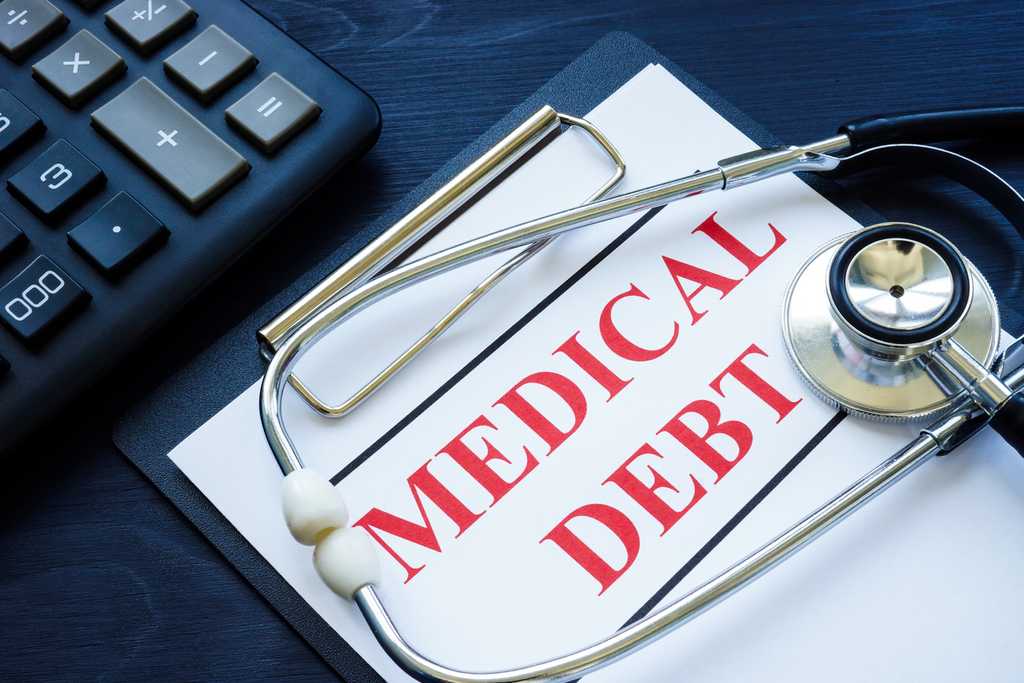Medical debt is a chronic problem in America and according to the CFPB, Americans had $88 billion in medical bills on their credit reports in 2022. This includes 20% of U.S. households and 43 million credit reports.
Medical debt can have a huge impact on your ability to access credit, but there are things you can do to proactively manage your medical bills so that they don’t end up in collections. Additionally, thanks to upcoming changes in the ways that the consumer credit reporting bureaus report medical debt, there is some relief in sight for consumers who have small amounts of medical debt dragging their credit scores down.
How Does a Medical Bill Hurt Your Credit?
Just like a past-due credit card bill or any other bill in collections, an unpaid medical bill can eventually end up hurting your credit score. However, because medical bills are treated differently than other consumer debt, they usually won’t end up hurting your credit until they become a collections account. Collections accounts are part of your payment history, which constitutes 35% of your FICO credit score.
How a Medical Bill Gets to Your Credit Report
Most health care providers do not report to credit bureaus, so a past-due bill from a hospital or other medical provider will likely not show up on your credit report right away. Depending on your healthcare provider, you might get 60, 90 or even 120 days before your provider sells your debt to a collection agency, at which point it is likely to make its way onto your credit report.
Even when your medical debt gets sold to a credit agency, you have a window of time before that debt starts showing up on your credit report and impacting your credit score. The three consumer credit reporting agencies, Experian, TransUnion and Equifax, give you a grace period of 180 days before any medical debt in collections appears on your credit report.
What Happens After You Pay
If you have a medical collections account that has made its way to your credit report, but you have managed to pay it off, in many cases it will stop impacting your credit score.
Newer credit scoring models ignore collections accounts that have a zero balance. If your lender is using the most recent version of the FICO credit score or VantageScore 3.0 or 4.0, having a paid collections account will not hurt your credit score.
However, not all lenders use the newest versions of FICO and VantageScore and some will take collections accounts into consideration even if they are not reflected in your credit score. Some lenders, particularly mortgage lenders, use older versions of credit scoring models, meaning that in some cases, your credit will be impacted even if you pay off medical debts.
Can You Remove Medical Bills From Your Credit Report?
Not every debt that shows up on a credit report is accurate and legitimate and medical debt is no exception to this rule. If a medical bill that shows up on your credit report is inaccurate or fraudulent, you can likely get it removed from your credit report by filing a dispute with the credit bureaus.
Disputes are free to file but need to be filed separately with each bureau that is reporting an inaccurate medical debt. If a dispute is resolved in your favor, illegitimate or inaccurate medical debt can be removed from your credit report or updated to be accurate.
Note that this is not a strategy to remove medical debt that is legitimate and accurate; opening a dispute in the hopes of removing debt that you incurred and owe is unlikely to result in its removal from your credit report.
What to Do If You Can’t Pay Your Medical Bills
If you are struggling to pay your medical bills, the best time to take action is as soon as possible. Depending on your situation, you likely have many options to resolve your medical bills or make paying them off possible before they become collections accounts and start impacting your credit score. Here are some ways you can proactively manage your medical bills.
Make Sure You Are Billed Accurately
Medical billing is immensely complex and coding inaccuracies do occur. First, ask for an itemized bill and make sure that your bill is accurate. If you are being charged for services or procedures that you never received, call your provider’s billing department and dispute them.
Second, make sure that your medical bill is properly submitted to your insurance company if you have insurance. Once your insurance company processes your bill, you should receive an explanation of benefits that details which services were covered and which you are responsible for out of pocket. Insurance companies negotiate billing rates for services with providers. Even if your insurance company does not pay for a service, submitting it to your insurance company may decrease the amount you are expected to pay out of pocket.
Ask If You Are Eligible for Financial Assistance
Some providers have financial assistance programs that can partially or completely forgive your bills if you can demonstrate that you are unable to pay. Usually these programs will require you to verify income or assets. Help might also be available from state or federal programs, nonprofit groups and religious organizations depending on your location and affiliation.
Seek Out Payment Plan Options
Many medical providers understand that they are more likely to have medical bills paid if they can provide some flexibility to those paying or are willing to discount services in exchange for immediate payment. Ask your medical provider what options are available; you may be surprised how flexible many medical providers can be.
While some providers may offer a payment plan with no interest charges, be aware that a payment plan that includes interest charges or fees will increase the amount of money you end up paying.
Most Medical Debt May Soon Vanish From Credit Reports
If you have medical debt that has hit your credit report and is impacting your credit, you may get some relief this year. In March 2022, the three credit reporting agencies announced that nearly 70% of medical collection debt will be removed from consumer credit reports.
Starting July 1, 2022, paid medical collection debt will no longer be included on consumer credit reports, meaning that if you pay off your medical collection debt, as of July 1, 2022 it will no longer impact your credit. Additionally, the bureaus are increasing the grace period before reporting your medical debt and will give you one year before medical debt is reported on your credit report.
In 2023, the bureaus will also begin dropping small medical collection debt from credit reports. Medical collection debt under $500 will no longer be reported when someone requests your credit report, and hence won’t impact your credit score.
It is important to note that the absence of small medical debts on your credit report may prevent them from impacting your credit score, but it does not absolve you of your liability to pay that debt.
The Time to Act Is Now
If you have unpaid medical debts, the best time to take action is now. Your best bet is to seek out the many options for paying or settling your medical debt before it becomes a collections account. However, even if you have a medical debt that becomes a collections account, you can lessen the impact on your credit score by paying it off. Come 2023, small medical debts and paid collections accounts will no longer impact your credit score.

